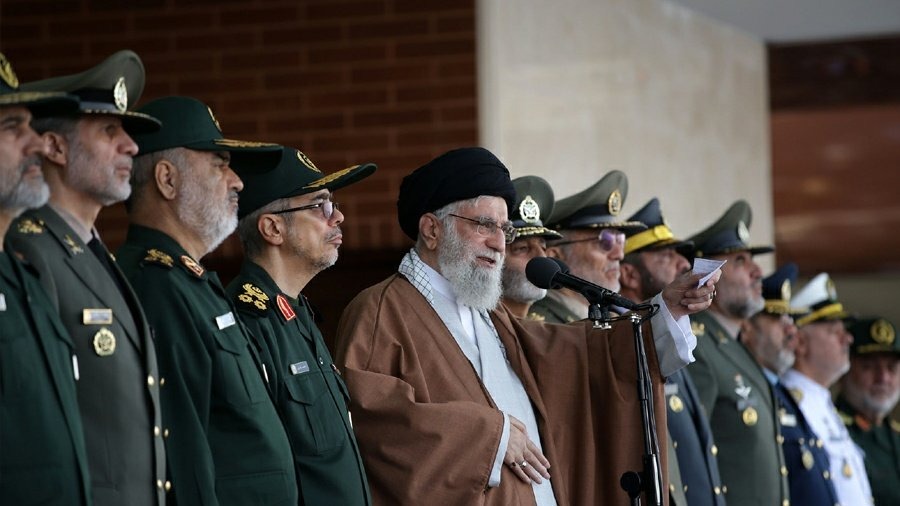Introduction: Heightened Tensions Over Gaza
In a significant development amid the ongoing Israeli-Palestinian conflict, Iran has strongly rejected a proposal from the United States that calls for the “forcible displacement” of Palestinians from Gaza. The U.S. plan, which has stirred diplomatic tensions, aims to address the humanitarian crisis in Gaza by suggesting the relocation of civilians to neighboring countries as a temporary measure. However, Iran, a key regional player and long-time supporter of Palestinian rights, has condemned the idea, labeling it as an unjustifiable violation of international law.
The U.S. plan, which some view as a potential solution to the Gaza Strip’s dire humanitarian situation, has sparked a wave of criticism not only from Iran but from various international actors who argue that it would lead to further suffering and displacement for the Palestinian people. This rejection from Iran is a continuation of its longstanding stance on the protection of Palestinian rights and sovereignty.
Iran’s Response – A Rejection Rooted in Political and Moral Grounds
Iran has denounced the U.S. plan as a violation of international law, arguing that forcibly displacing Palestinians from Gaza is an unjust and inhumane solution to the crisis. The Iranian government has emphasized its longstanding commitment to supporting the Palestinian people and their right to live on their land in peace and dignity.
Iran’s rejection is aligned with its broader foreign policy stance of supporting Palestinian resistance against Israeli occupation. Iran has consistently called for the establishment of an independent Palestinian state, with Jerusalem as its capital, and opposes any actions that undermine Palestinian sovereignty.
Iran’s stance has drawn both support and criticism from various international players. While many in the Middle East and the global South back Iran’s position on Palestinian rights, Western nations, particularly the U.S., have criticized Iran for its involvement in regional conflicts and its backing of militant groups like Hamas.
The Global Context – Divided Reactions on the U.S. Plan
Iran is not alone in opposing the U.S. proposal. Several Arab nations, including those in the Gulf Cooperation Council (GCC), have expressed their concern about the implications of forcibly displacing Palestinians. These countries argue that the solution should not come at the expense of Palestinian rights, and that the priority should be to address the root causes of the conflict—namely, the Israeli occupation and the lack of a viable Palestinian state.
In contrast, the United States and some European nations have expressed support for the U.S. proposal, viewing it as a necessary step to alleviate the immediate suffering in Gaza. These nations emphasize the humanitarian angle, suggesting that the displacement plan could provide relief to civilians trapped in the crossfire of an ongoing military conflict.
Human rights organizations have raised alarms about the potential violation of international law, particularly the prohibition against forced displacement under the Fourth Geneva Convention. These groups argue that any plan that forces civilians to leave their homes risks violating the rights of Palestinian refugees, many of whom have already been displaced multiple times.
The Role of Other Key Players
Egypt and Jordan, both of which border Gaza, have been put in a difficult position by the U.S. plan. These countries have long been mediators in the Israeli-Palestinian conflict and have expressed concern about hosting large numbers of refugees. While both countries have offered support to Palestinians, they also face political, economic, and social challenges in accommodating displaced populations.
The United Nations has voiced concern about any plan that would forcibly displace Palestinians. UN officials have called for a comprehensive solution to the conflict, one that respects the rights of Palestinians and leads to a lasting peace. The UN Relief and Works Agency (UNRWA) has been actively involved in providing aid to Palestinians in Gaza and the wider region.
What’s Next for Gaza and the Palestinian Cause?
As tensions continue to rise in Gaza, many advocates for Palestinian rights are calling for a renewed focus on a two-state solution. This would involve the establishment of a sovereign Palestinian state alongside Israel, with Jerusalem as the shared capital. However, achieving this remains a distant goal, as the path to peace remains fraught with political and territorial challenges.
The issue of Palestinian displacement is one of the most pressing concerns of the ongoing conflict. With millions of Palestinians already living as refugees in neighboring countries, the prospect of forced relocation could worsen an already fragile situation. Any solution must prioritize the rights of Palestinians to live with dignity in their homeland, free from occupation and displacement.
Conclusion: A Complex Issue with Global Implications
The U.S. plan to forcibly displace Palestinians from Gaza has sparked a global debate on the future of the Palestinian cause and the best way to address the humanitarian crisis in the region. While the U.S. sees the proposal as a temporary measure to protect civilians, Iran and other international actors view it as an unjustifiable violation of Palestinian rights. As the conflict continues, it remains to be seen whether international diplomacy can find a solution that respects both the sovereignty of Palestine and the security of Israel.





